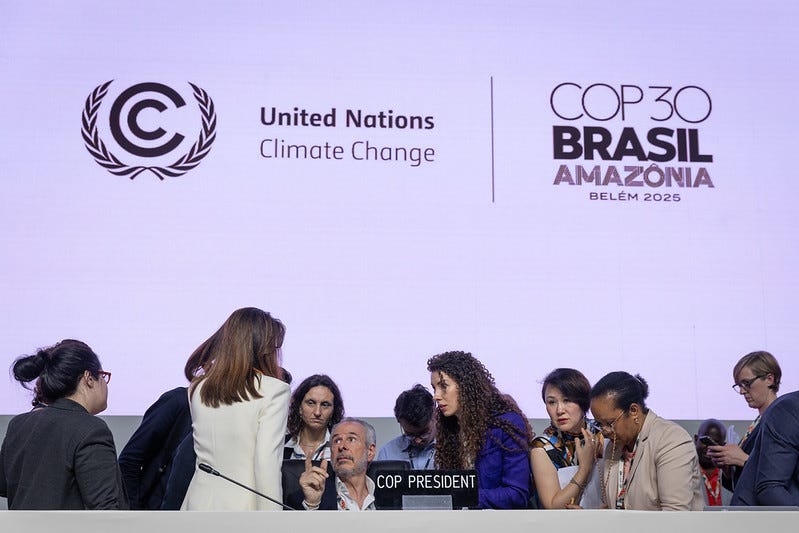COP30 may have ended with a fizzle but brought new hope for Brazil, Latin America
Forest deal, regional wins help Latam salvage victories from global inaction
This column is for Callaway Climate Insights subscribers only, but it’s OK to share once in a while. Was it shared with you? Please subscribe.

(Michael Molinski is a senior economist at Trendline Economics. He’s worked for Fidelity, Charles Schwab and Wells Fargo, and previously as a foreign correspondent and editor for Bloomberg News and MarketWatch.)
BELEM, Brazil (Callaway Climate Insights) — COP30 ended with a fizzle rather than with the concrete, far-reaching agreement to save the Amazon rainforest and the world from climate change — which was Brazilian President Luiz Inácio Lula da Silva’s goal and that of many others.
In the end, COP30 ended with a watered-down, compromise climate deal that didn’t even mention fossil fuels, the biggest drivers of climate change.
Brazil’s flagship investment fund, the Tropical Forest Forever Facility (TFFF), raised a paltry $7.7 billion, well below the $25 billion target.
And trade, which became a more hotly contested topic at Belém than it had been at other climate change conferences, was pushed out of the agenda and relegated to future discussions.
COP30 was billed as a significant opportunity for Latin America to lead in climate change negotiations. Did it do that?
Keep reading with a 7-day free trial
Subscribe to Callaway Climate Insights to keep reading this post and get 7 days of free access to the full post archives.

